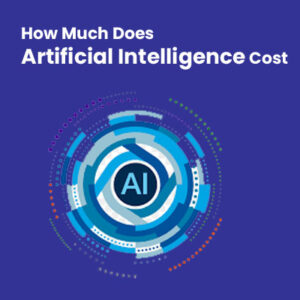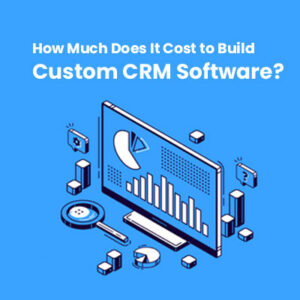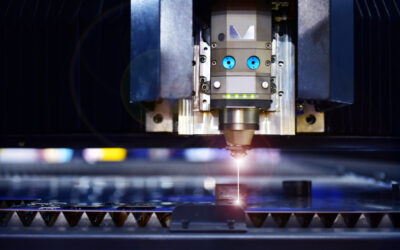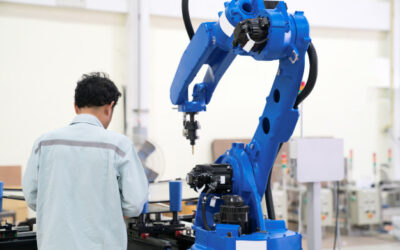Machine Learning in the Manufacturing Industry
Machine Learning in the Manufacturing Industry – Applications & Examples
Today, I would like to reiterate the importance of Artificial Intelligence (AI), Machine Learning (ML), Deep Learning and Data Science Technologies.
In our BLOG STOP page, we already explained the following topics,
- The benefits and risks of artificial intelligence
- Artificial Intelligence Market Predictions
- How AI revolutionizes businesses?
- What Artificial Intelligence Can Do For Retail Industry?
- The Significance Of AI Technology By Industry
- How Many Of You Agree That “AI is impacting The “Mobile App Development Industry?
- What kind of benefits delivered by AL & ML to banking and finance sectors
- 5 Examples That Show How Machine Learning is Changing Modern Advertising Industry
All of the above information blogs focus on helping the reader learn how to achieve exact business results using Artificial Intelligence.
Now, we will discuss on how AI & ML modernize the manufacturing industries. This article may give a few insights into developing technologies to manufacturers. Let’s move on to the topic.
Though the concept of Artificial Intelligence has been in the market for decades, now, it’s gaining momentum. It is a valuable asset to many industries. Using AI, the companies are observing smart business processes.
It does not matter how they use AI for manufacturing, but, intelligent technologies always help businesses to create smart business strategies. Isn’t it? Of course, it’s true!
Smart technologies are like gears for modern manufacturing industries. Moreover, AI & ML are playing a vital role in the manufacturing industry. They help manufacturers in finding new business ways that optimize existing operations.
The manufacturing industry always needs new ways in the design and development of equipment’s/products. It will enable manufacturers to excel in their productivity without compromising on product quality. However, with changing customer preference and need, the proliferation of new product demand is growing in manufacturing today.
To overcome this challenge, most of the manufacturers are shifting to ML technology. They have confidence in ML as it can enhance the performance of end-to-end manufacturing operations. It also provides a solution that helps to eliminate losses in product development.
Now, we will move further into major applications of Machine Learning in the manufacturing industry, along with the real-world examples.
Applications of Machine Learning in the Manufacturing Industry
#1 Machine Learning Enables Predictive Monitoring
ML models help manufacturers in monitoring equipment failures. ML-based predictive maintenance solution allows manufacturers to predict the device failures accurately. Also, instead of assigning new resources for planned equipment maintenance, using predictions, manufacturers can plan maintenance efficiently. This approach of predicting device conditions offers enhanced product reliability, quality, and durability.
Further, the ML-based monitoring and prediction systems can schedule device maintenance for particular time intervals. Hence, ML is engaged in performing repetitive tasks without human involvement. Therefore, ML apps in manufacturing offer business scalability and cost structure.
Example:
A popular automotive plant has implemented a predictive maintenance ML solution for their hydraulic press used in the production of vehicle panel. As per the study, engineers spend more time attending to disassembly without allotting resources for planned maintenance.
This ML solution allows predicting device failure with 92% accuracy, to plan maintenance more efficiently and to provide greater product quality and asset reliability. Total equipment efficiency has risen to 85% from 65%.
#2 ML Technology For Quality Control
Artificial intelligence and ML technologies are using to perform quality control and product inspection tasks. ML-driven computer vision algorithms can automatically learn from product data and detect the defects in the product. Besides, ML can also perform automatic quality control tests that can detect device faults with over 90% accuracy.
The agricultural sector is also gaining incredible benefits using intelligent sorting techniques. Using these systems, the operators can grade a product based on size and quality. This kind of ML solution helps to reduce the difficulty of the sorting procedure in agriculture.
Example:
An agricultural product packing equipment manufacturer have created a smart fruit sorting machine that uses machine learning and computer vision to classify the defects of skin.
The operator sorting platform can differentiate between different types of errors and sort the fruits into advanced pack grades. The solution combines software, hardware, and functional optimization to reduce the complexity of the sorting process.
#3 ML For Inventory & Logistics Management
Manufacturing industries are not only focused on assembly line and production functions, but they also give equal importance to their supply chains and logistics operations. An amazing quantity of logistics to aid the increased smart production process is essential for enterprises.
In traditional methods, companies perform manual tasks like order data collection, orders value calculation, logistics performing and product-related tasks. But, ML-powered manufacturing solutions can efficiently handle issues in logistics services and cuts unnecessary costs.
Example:
Another strength of machine learning-based algorithms is resource management. To know how powerful it is, please have a look at the power-consumption optimization algorithm that Google has reduced to 40% on its electricity bills in its data center cooling systems.
This was done without any alterations or infrastructure modernization – the big data passing through the system was adequate – making this feat even more impressive.
#4 ML for demand forecasting
AI & ML algorithms can integrate with procurement and cost management fields. It will improve the accuracy of product demand prediction.
Using historical product demand and supply data, ML models can provide insights into its market and allow manufacturers to take the necessary steps in product range and supply.
#5 Significance of Robots in Manufacturing
It’s a fact that robots play a prominent role in the manufacturing industry 4.0. The use of industrial robots in performing repetitive manufacturing tasks is increasing rapidly. Robotic-powered manufacturing process offers ample opportunities to the manufacturing company in achieving agile production and reduces human-errors.
Some Closing Thoughts:
The machine learning algorithm is an essential technology that provides advanced predictive maintenance. They can identify, monitor, and analyze device conditions during the manufacturing process. Using machine learning, the operators can alert before the product or device failure. As we discussed in this article, ML helps the manufacturer in many ways.
USM, a leading artificial intelligence and machine learning service provider, helps your business to get benefit from these intelligent technologies. Our expertise in using AI and ML technologies helps various industries in fueling their business.
USM Business Systems’s AI-driven solutions empower manufacturers to bring automation in manufacturing tools, machines, procedures, and analytics. We help you to scale the manufacturing automation.
Our expertise in delivering custom-build Artificial Intelligent mobile apps for manufacturing customers made us a leading AI service provider in the market.






















